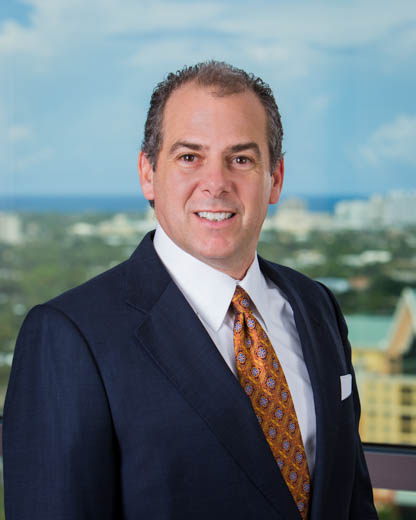 This article appeared in the Daily Business Review on September 23, 2021.
This article appeared in the Daily Business Review on September 23, 2021.
Commentary provided by Joseph M. Goldstein.
As we approach the 22nd year of the enactment of the voluntary trial resolution statute, Section 44.104, Florida Statutes, a recent case increases the benefits of such in light of recent mandates controlling case scheduling.
Commonly referred to as private judging, voluntary trial resolution (VTR), gives parties in a civil dispute (excluding constitutional issues) the ability to select an attorney to serve as a private judge, compensated by the parties. The Florida Evidence Code applies to VTR proceedings, and the final decision may be enforced in circuit court by final judgment, with an appeal to a district court of appeal as to legal issues only.
The benefits of VTR include the retention of an experienced attorney that will have the time and expertise to dedicate to resolving a dispute. Many circuit court judges may have varying experience and have caseloads in the thousands, making it impossible to dedicate sufficient time to a specific case.
Historically, VTR may have been used to expedite the case through a clogged state court system, but with recent mandates by the Florida Supreme Court requiring trial judges to more strictly enforce the prosecution of civil cases, using VTR may actually give litigants the ability to avoid prematurely going to trial.
On April 13, the Florida Supreme Court issued Amendment 12 to Administrative Order AOSC20-23, pertaining to Comprehensive COVID-19 Emergency Measures for Florida Trial Courts. Section G addresses case management and resolution, requiring trial courts to designate cases as complex, streamlined, or general, and to issue case management orders setting deadlines for various steps in the litigation along with a projected trial date. Parties are advised that the trial courts will “strictly enforce” these deadlines, and the court will set a firm trial date when the case is at issue, i.e., just after the closing of the pleadings, which will be well before it is ready for trial.
Trial judges are to “strictly comply with Florida Rule of General Practice and Judicial Administration 2.545(a), (b), and (e), which respectively require judges to conclude litigation as soon as is reasonably and justly possible to do so, to take charges of all cases at an early stage and to control the progress of the case thereafter until it is determined, and to apply a firm continuance policy allowing continuances only for good cause shown.” The Florida Supreme Court also ordered courts to communicate with lawyers “that the pandemic alone is not a basis for a lawyer’s failure to prepare a case for trial or otherwise actively manage a case.”
In South Florida, as in other circuits, courts have entered administrative orders implementing the Florida Supreme Court’s direction to speed up the resolution of cases. See Broward AO 2021-19-CIV; Miami-Dade AO No. 21-09 (Case No. 21-1); and Palm Beach AOs 3.107 and AO 3.108. All of these AOs warn counsel that the case management deadlines will be strictly enforced to ensure trial readiness and that trial continuances will be granted only upon good cause. And, although similar warnings have appeared before, with the increased scrutiny of dockets by the Florida Supreme Court, the likelihood of continuances being routinely granted upon the agreement of counsel without a strong basis for good cause will be diminished.
VTR provides litigants increased flexibility to these stricter, pandemic announced trial deadlines. In a recent case, the appellate court ordered the trial judge to enter an order appointing a private judge selected by the parties. See Community/Condotte/De Moya JV v. Circuit Court Judge, Case No. 3D21-1178 (July 14, 2021). In denying the motion for VTR, the court noted that the case had been pending for three years, a trial date had been set for six months out, and concluded “’if the purpose of Section 44.104 is to provide alternatives for the expeditious resolution of disputes, such purpose is defeated by a request that will have the effect of further delaying this case.’” The appellate court held that the trial court had no discretion to deny the parties request for VTR, reasoning “under the plain language of Section 44.104(4), the trial court’s views about the best and most expeditious method to resolve the dispute must yield to the parties’ legislatively given right to jointly agree to submit their case to a private judge.”
This ruling, gives litigants the ability to employ VTC to ensure that the resolution of their cases fits the parties’ schedule not the court’s based on recently enacted rules that may impose unrealistic time tables due to the overburdened trial court system.
Joseph M. Goldstein is a partner in the Fort Lauderdale office of Shutts & Bowen. He is a Florida Supreme Court Certified Civil Circuit Mediator and Florida Bar Board Certified in Business Litigation. He can be reached at jgoldstein@shutts.com.
